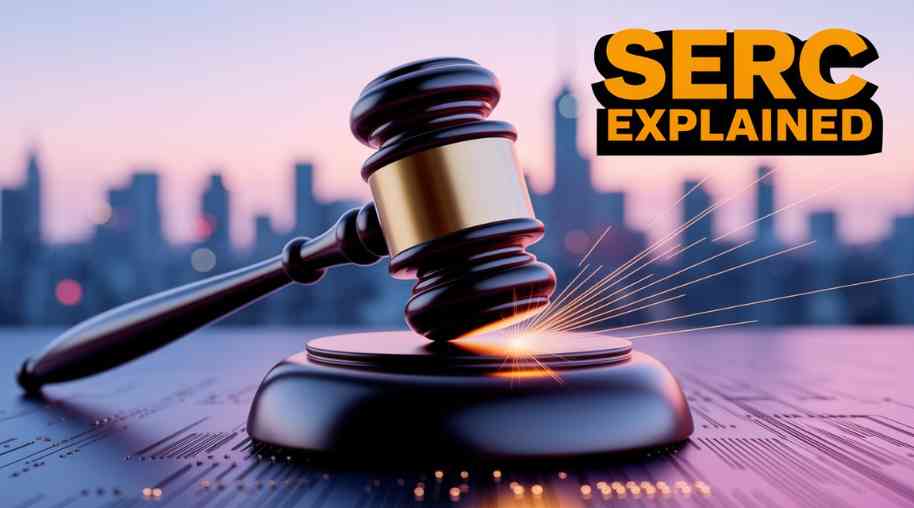SERC Full Form-State Electricity Regulatory Commission
by Shashi Gaherwar
0 1011
State Electricity Regulatory Commission (SERC): Ensuring Fair Energy Governance
Introduction
The State Electricity Regulatory Commission (SERC) is a crucial regulatory body in India's power sector, responsible for overseeing the electricity distribution, generation, and transmission at the state level. Established under the Electricity Act, 2003, SERC aims to promote transparency, efficiency, and fairness in the electricity market while ensuring consumer protection and tariff regulation.

Objectives of SERC
SERCs operate with the following key objectives:
• Regulating Electricity Tariffs: Ensuring fair pricing for consumers and power suppliers.
• Promoting Competition: Encouraging private participation and fair competition in the power sector.
• Protecting Consumer Interests: Addressing grievances and ensuring quality electricity supply.
• Encouraging Renewable Energy: Supporting the transition to sustainable and green energy sources.
• Ensuring Financial Viability: Maintaining economic sustainability in the electricity market.
Key Functions of SERC
1. Tariff Regulation and Pricing
• Determines electricity tariffs for different consumer categories.
• Ensures that electricity prices are fair and reflect the cost of production.
• Protects consumers from arbitrary price hikes while ensuring profitability for suppliers.
2. Licensing & Regulation of Power Distribution
• Grants licenses to power generation, transmission, and distribution companies.
• Monitors compliance with regulations to maintain quality and efficiency.
• Encourages competition to improve service quality and reduce costs.
3. Dispute Resolution & Consumer Protection
• Addresses consumer complaints regarding billing, supply disruptions, and service quality.
• Arbitrates disputes between electricity providers and consumers.
• Ensures electricity providers adhere to service quality standards.
4. Promotion of Renewable Energy
• Implements policies to encourage the adoption of solar, wind, and hydroelectric power.
• Mandates renewable purchase obligations (RPO) for power distribution companies.
• Supports research and innovation in sustainable energy solutions.
5. Monitoring Electricity Supply & Performance
• Tracks the reliability and efficiency of power generation and distribution.
• Ensures adherence to technical and safety standards.
• Implements policies for grid stability and efficient energy use.
Structure & Implementation
• Chairperson & Members: Appointed by the state government, they oversee regulatory functions.
• Technical & Legal Experts: Assist in framing policies and handling disputes.
• Coordination with Central Electricity Regulatory Commission (CERC): Ensures uniformity in national and state electricity policies.
Impact of SERC on the Power Sector
• Fair Pricing: Helps maintain affordable electricity rates.
• Improved Service Quality: Ensures reliable and efficient electricity supply.
• Consumer Empowerment: Provides platforms for consumer grievances and redressal.
• Growth of Renewable Energy: Encourages sustainable energy adoption.
• Economic Stability: Ensures financial health of power distribution companies.
Challenges Faced
• Regulatory Delays: Slow policy implementation affects efficiency.
• Tariff Disputes: Balancing consumer affordability and supplier profitability is complex.
• Financial Constraints: Many state power utilities struggle with debt and operational inefficiencies.
• Infrastructure Development: Ensuring nationwide electricity access requires significant investment.
The State Electricity Regulatory Commission (SERC) plays a pivotal role in regulating and reforming India's power sector. By balancing the interests of consumers, businesses, and renewable energy goals, SERC contributes to an efficient, fair, and sustainable electricity market. Strengthening regulatory mechanisms and improving governance can further enhance its effectiveness, ensuring long-term benefits for the economy and society.

Share:








Comments
Waiting for your comments